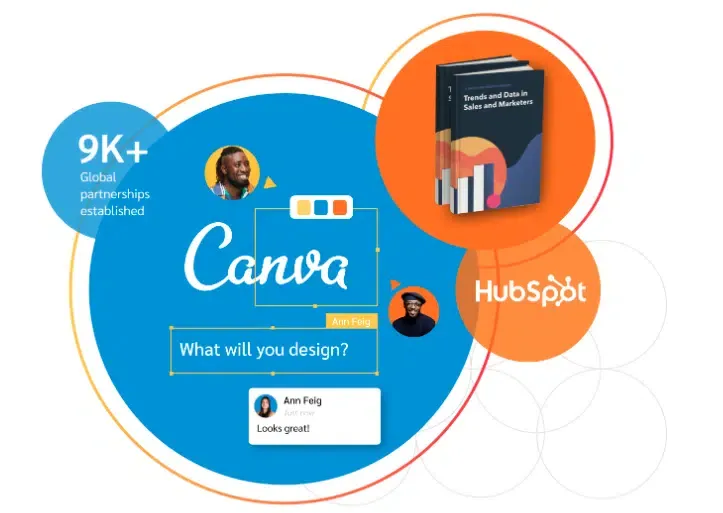The three challenges partnerships will solve for your business

The body content of your post goes here. To edit this text, click on it and delete this default text and start typing your own or paste your own from a different sourceThe last few years haven’t been the smoothest for the digital advertising industry. The dawn of the privacy-first era coincided with the arrival of the global pandemic, the two combining to produce one of the greatest challenges advertisers, brands and publishers have ever faced.
But with trust in traditional advertising waning, the emergence of the partnership marketing channel has reinvigorated the brand-consumer relationship and ushered in a wave of more nuanced buying habits. As we step forward into further uncertainty, it is critical that businesses rise and adapt, and partnerships represent a very real solution.
The State Of Play
Where once companies jostled for the attention of consumers, we’re now seeing brands collaborate to grow their businesses, advocating for each other and achieving mutual, sustainable success as a result. These authentic partnerships between businesses are a key component of the partnership economy, and are supplemented by impact.com’s technology, which allows partnerships of all kinds to become productive, sophisticated and scalable.
Agencies and technology partners add a further layer of dynamism. Specialist digital agencies, for example, leverage their rich and nuanced knowledge of the partnerships channel to help advertisers grow their programs. As a Channel Partnerships Development Manager at impact.com, I help our clients to identify best-fit agency partners across our ecosystem and work with both parties to define the role of each party. For those advertisers with fewer internal resources, or those with the desire to extend their incumbent marketing function, agencies offer an organic option.
As modern consumers, we hope to encounter simplicity and ease of use, and partnership marketing applies a similar principle. Integrations with e-commerce platforms such as Shopify and WooCommerce give small and medium businesses owners access to global partners in just a few clicks. In the wake of the seismic events of the past few years, the partnership channel creates a way not only to create value, but to measure its utility within your business.
The Three Challenges
1. Diversification from primary marketing channels
I was recently involved in a conversation in which an SME mentioned spending £100k a week on Facebook advertising, and they were struggling to determine if it was helping them acquire the right customer. Although this type of advertising is necessary for plenty of businesses, the partnership economy operates largely outside the tech giants’ sphere of influence.
Instead of casting a broad net, we encourage our clients to define their perfect customer, and then develop partnerships to help them meet that customer, wherever they are to be found. For example, there is an inherent synergy in partnering with fitness content creators if you are selling running shoes. Allocating budget to grow a diverse mix of partners can be a great way of creating value for your business.
2. Goal-sharing across teams
The term ‘partnerships’ has seen widespread adoption in recent years, as businesses have realised they can partner with many different types of third-party entities. Where the affiliate industry was initially concerned with traditional affiliates, the technology now allows other partner types such as influencers, B2B and content partners to be managed, optimised, tracked and paid in a similar way.
Feeding all partnerships through a single platform enables collaboration between various parts of a business, including PR, social and affiliate teams. Giving them the tools to help them speak the same language and work towards common goals is a fantastic benefit of partnership marketing.
3. Privacy and consent
Like all the digital advertising industry, we operate under the privacy and consent conditions set by the internet’s biggest players. However, consumer scepticism about certain advertising channels has shone a spotlight on partnerships as a way of delivering authenticity and trustworthiness in the consumer journey.
This isn’t to say that partnerships will ‘solve’ the privacy and consent concerns your business has – these challenges are highly technical. However, the opportunity that partnerships do create is of a softer and more authentic call to action – perhaps through a trusted influencer or blogger. As an industry cemented in relationship building, we’re uniquely placed to help consumers feel less intruded upon.
Reaping Rewards
The concept of partnerships and affiliates has been around since the earliest days of ecommerce and as such the industry is a foundational element of modern consumerism. What makes partnerships so potent is the fact that they allow businesses to grow and adapt together, and to collaborate in the wake of considerable global challenges. It’s an exciting time for a business to be introducing partnerships into their mix, creating trust and transparency in an age when they have never been more needed.
Also published in: Modern Retail
Podcasts powered by AudioHarvest



